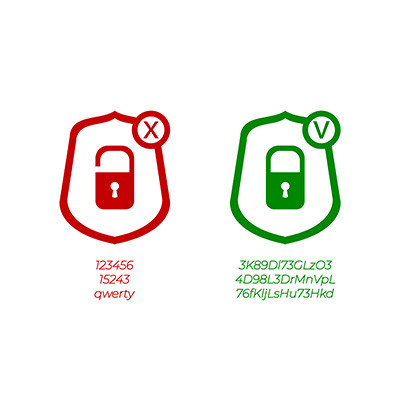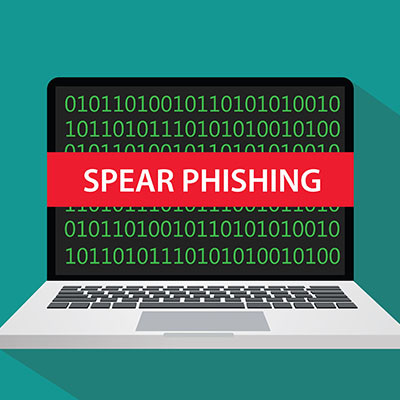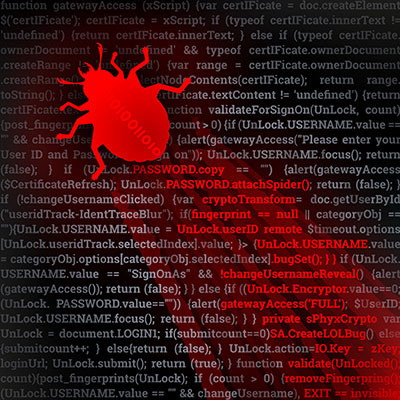Cybercrime has grown rapidly over the last several years. We’ve seen more and more businesses get hit by crippling ransomware, data breaches, and other types of attacks. End-users are inundated with common, but deadly phishing attacks and other threats that are so easy to fall for, even IT experts could get tricked. Let’s look at these trends for 2023, and how your business can prepare for them.
Datalyst Blog
Most organizations are trying to figure out how to secure their IT against the constant flood of threats out there. Unfortunately, the biggest threat out there isn’t something that you can actively protect against. Can you guess what it is?
Unfortunately, it’s your employees, and their potentially lax password practices—and while you can’t really protect yourself against insecure passwords, you can minimize the likelihood that they’ll be used.
Small businesses have a lot to worry about in terms of technology, but one of the things that often gets overlooked is network security. Some small businesses feel that they are too small to be considered a viable target for hackers, but they are wrong; all businesses have data valuable for hackers in some form.
When security breaches and data breaches are mentioned in the same breath so often, it’s easy to look at them as one and the same. However, we want to take a moment to explain the differentiating factors between the two, as it could be all the most important for protecting your business in the future.
A decade or so ago, IT security was as simple as buying antivirus software for each computer in a business. As long as you kept renewing your antivirus, kept it updated, and ran regular scans, your business would avoid 99 percent of the threats out there.
Over the last several years, things have changed and become much more complicated.
Cybersecurity has been such a growing problem for individuals, organizations, and businesses over the last several years, and at least in Massachusetts, it has become a crucial concern for lawmakers. While we’ve been seeing some businesses start to take these threats more seriously, there’s still a long, rough road ahead of us all before cybersecurity can be a passive thought.
Simple passwords are just not an effective security practice, so if you’re still using credentials like Password, 123456, Guest, or Qwerty, listen up. You need better password hygiene practices before you suffer from a data breach. Here are some ways you can make a better password to protect your business from threats.
While security researchers do their best to find security vulnerabilities in software and systems before they are actively exploited by attackers, they can’t be successful all the time. There are too many threats and too many variables to consider, and zero-day exploits are often discovered well after they are actively being exploited by threats. How can you keep zero-day exploits from impacting your business?
There is a scam going around that convinces organizations to pay for their Google Business Profile, and if you paid for this free service, you’ve fallen for the trick. Google is taking legal action against the scammers who have dragged their name through the mud, using Google’s notoriety to defraud businesses who just want to look competitive.
It’s the holiday season, and you know what that means: lots of gift-giving and online shopping. Regardless of what you and your family celebrate this holiday season, you should be prepared to handle the influx of phishing attacks which always surface around this time every year, including both the usual methods and the more sophisticated ones.
For millions of people, the rubber ducky is a benign reminder of childhood. Depending on when you were a child, the rendition of Sesame Street’s Ernie singing “Rubber Duckie, you’re the one,” is ingrained in your mind every time you hear the term. Unfortunately, the Rubber Ducky we are going to tell you about today has only fond recollection for people who are looking to breach networks they aren’t authorized to access or deliver malware payloads that are designed to cause havoc.
In 2021, FBI Director Christopher Wray spoke out about what he described as “one of the most despicable cyberattacks” he’d seen. It’s little wonder he used such choice words; he was talking about the attack that state-sponsored threat actors had waged against the Boston Children’s Hospital. While the attack was thwarted, it prompted the Cybersecurity Coordination Center of the Department of Homeland Services to release a white paper alert.
It probably isn’t a question you’ve put much thought to, but tell me: who do you think feels the greatest impact from card skimming schemes, where a payment card’s data is captured so a cybercriminal can make use of the card’s associated account? While it isn’t a good situation for anyone, some are impacted more than others.
As we’ve said time and time again, modern businesses need to be prepared to resist cybercrime and cyberattacks…and as it happens, the Federal Bureau of Investigation agrees with us. How can we be so sure? Simple—the FBI is currently pushing businesses in the northeast to better prepare themselves, including here in Boston.
WhatsApp is one of the world’s most popular messaging applications. With over 2 billion users, WhatsApp is known for its relative security, as it is one of the few messaging applications that offers end-to-end encryption. A modified version of WhatsApp, called YoWhatsApp, has been reportedly deploying malware.
Ransomware is one of the more dangerous threats out there today, and since it is so prominent and dangerous, it is a popular choice amongst hackers. To combat this threat, a community has formed around the cause, encouraging users to not pay the ransom by providing free malware removal tools for the most popular ransomware threats.




















